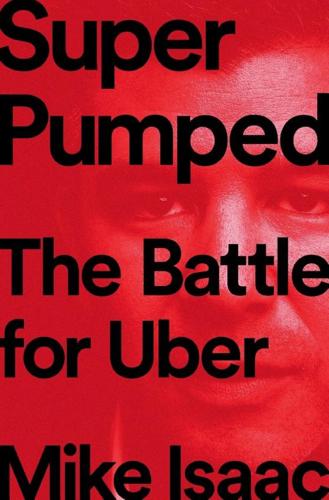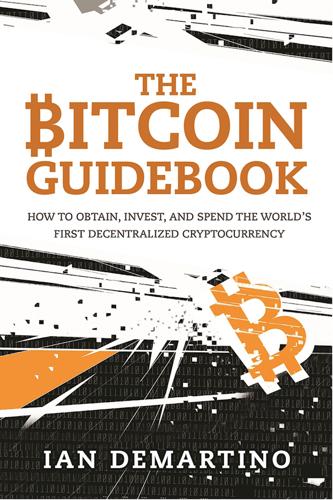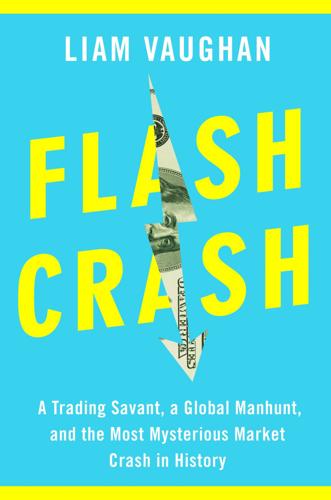selling pickaxes during a gold rush
4 results back to index

pages: 332 words: 97,325
The Launch Pad: Inside Y Combinator, Silicon Valley's Most Exclusive School for Startups by Randall Stross
affirmative action, Airbnb, AltaVista, always be closing, Amazon Mechanical Turk, Amazon Web Services, barriers to entry, Ben Horowitz, Benchmark Capital, Burning Man, business cycle, California gold rush, call centre, cloud computing, crowdsourcing, don't be evil, Elon Musk, Hacker News, high net worth, hockey-stick growth, index fund, inventory management, John Markoff, Justin.tv, Lean Startup, Marc Andreessen, Mark Zuckerberg, Max Levchin, medical residency, Menlo Park, Minecraft, minimum viable product, Morris worm, Paul Buchheit, Paul Graham, Peter Thiel, QR code, Richard Feynman, Richard Florida, ride hailing / ride sharing, Salesforce, Sam Altman, Sand Hill Road, selling pickaxes during a gold rush, side project, Silicon Valley, Silicon Valley startup, Skype, social graph, software is eating the world, South of Market, San Francisco, speech recognition, Stanford marshmallow experiment, Startup school, stealth mode startup, Steve Jobs, Steve Wozniak, Steven Levy, TaskRabbit, transaction costs, Y Combinator
Richard Florida, “The Spread of Start-Up America and the Rise of the High-Tech South,” The Atlantic, October 2011, www.theatlantic.com/technology/archive/2011/10/the-spread-of-start-up-america-and-the-rise-of-the-high-tech-south/246916/. 16. Chris Dixon, “Selling Pickaxes During a Gold Rush,” Chris Dixon blog, February 5, 2011, http://cdixon.org/2011/02/05/selling-pickaxes-during-a-gold-rush/. 17. Robin Wauters, “Salesforce.com Buys Heroku for $212 Million in Cash,” TC, December 8, 2010, http://techcrunch.com/2010/12/08/breaking-salesforce-buys-heroku-for-212-million-in-cash/. Heroku had raised only $13 million in capital prior to its sale, so its investors enjoyed outstanding returns in a very short period of time.
…
Perhaps they could build a sideline business out of it and make a little money. They named their company MongoHQ, which left no question what line of software they were in. They worked on MongoHQ in the evenings and the wee hours of the morning while holding down day jobs. They took heart from “Selling Pickaxes During a Gold Rush,” a blog post published a couple of months earlier, in February, by Chris Dixon, a seed investor who was based in New York City but well known and respected in Silicon Valley.16 During the California gold rush, some of the most successful businesspeople—like Levi Strauss—didn’t mine for gold themselves but did well selling supplies to those who did.
…
Dixon mentioned that Y Combinator’s most successful “exit” to date was Heroku, the company that sold cloud-related services to other software companies, the digital era’s equivalent of selling pickaxes to miners. It was sold to Salesforce.com less than three years after its birth at YC for more than $200 million cash.17 The two MongoHQ founders cited the Dixon post in their YC application and declared, “We are selling pickaxes during a gold rush.” In the section where they were asked to explain how the founders had met and how long they had known each other, they gave answers that would be far more likely to come from older founders than younger ones: they had known each other ten years; had worked together for much of that time; and could write, “We have often been referred to by others as work wives, although we argue about who is the wife in the arrangement. :)” When they applied, they could report that MongoHQ had 5,100 accounts and about $5,500 of recurring monthly revenue.

pages: 444 words: 127,259
Super Pumped: The Battle for Uber by Mike Isaac
"Susan Fowler" uber, "World Economic Forum" Davos, activist fund / activist shareholder / activist investor, Airbnb, Albert Einstein, always be closing, Amazon Web Services, Andy Kessler, autonomous vehicles, Ayatollah Khomeini, barriers to entry, Bay Area Rapid Transit, Benchmark Capital, Big Tech, Burning Man, call centre, Cambridge Analytica, Chris Urmson, Chuck Templeton: OpenTable:, citizen journalism, Clayton Christensen, cloud computing, corporate governance, creative destruction, data science, Didi Chuxing, don't be evil, Donald Trump, driverless car, Elon Musk, end-to-end encryption, fake news, family office, gig economy, Google Glasses, Google X / Alphabet X, Greyball, Hacker News, high net worth, hockey-stick growth, hustle culture, impact investing, information security, Jeff Bezos, John Markoff, John Zimmer (Lyft cofounder), Kevin Roose, Kickstarter, Larry Ellison, lolcat, Lyft, Marc Andreessen, Marc Benioff, Mark Zuckerberg, Masayoshi Son, mass immigration, Menlo Park, Mitch Kapor, money market fund, moral hazard, move fast and break things, Network effects, new economy, off grid, peer-to-peer, pets.com, Richard Florida, ride hailing / ride sharing, Salesforce, Sand Hill Road, self-driving car, selling pickaxes during a gold rush, shareholder value, Shenzhen special economic zone , Sheryl Sandberg, side hustle, side project, Silicon Valley, Silicon Valley startup, skunkworks, Snapchat, SoftBank, software as a service, software is eating the world, South China Sea, South of Market, San Francisco, sovereign wealth fund, special economic zone, Steve Bannon, Steve Jobs, stock buybacks, super pumped, TaskRabbit, tech bro, tech worker, the payments system, Tim Cook: Apple, Travis Kalanick, Uber and Lyft, Uber for X, uber lyft, ubercab, union organizing, upwardly mobile, Vision Fund, WeWork, Y Combinator
They encouraged average investors to sink their savings into internet startups, which they described as strong investments with good, long-term growth potential. An entire ecosystem of companies that catered to dot-com companies sprung up around the Valley (along with the popularity of the shopworn San Francisco adage that it’s better to sell shovels during a gold rush than to actually prospect for gold). For a starting price of $25,000, employees at Startups.com would help new companies find an office, pick their furniture, even figure out their payroll software. In response to this frothing market, and worried about inflation, the Fed raised interest rates several times in quick succession in 1999 and 2000, closing the faucet on free-flowing capital.

pages: 296 words: 86,610
The Bitcoin Guidebook: How to Obtain, Invest, and Spend the World's First Decentralized Cryptocurrency by Ian Demartino
3D printing, AltaVista, altcoin, bitcoin, Bitcoin Ponzi scheme, blockchain, buy low sell high, capital controls, cloud computing, Cody Wilson, corporate governance, crowdsourcing, cryptocurrency, decentralized internet, distributed ledger, Dogecoin, Edward Snowden, Elon Musk, Ethereum, ethereum blockchain, fiat currency, Firefox, forensic accounting, global village, GnuPG, Google Earth, Haight Ashbury, initial coin offering, Jacob Appelbaum, Kevin Kelly, Kickstarter, litecoin, M-Pesa, Marc Andreessen, Marshall McLuhan, Oculus Rift, peer-to-peer, peer-to-peer lending, Ponzi scheme, prediction markets, printed gun, QR code, ransomware, Ross Ulbricht, Salesforce, Satoshi Nakamoto, self-driving car, selling pickaxes during a gold rush, Skype, smart contracts, Steven Levy, the medium is the message, underbanked, WikiLeaks, Zimmermann PGP

pages: 290 words: 72,046
5 Day Weekend: Freedom to Make Your Life and Work Rich With Purpose by Nik Halik, Garrett B. Gunderson
Airbnb, bitcoin, Buckminster Fuller, business process, clean water, collaborative consumption, cryptocurrency, delayed gratification, diversified portfolio, do what you love, drop ship, en.wikipedia.org, estate planning, Ethereum, fear of failure, fiat currency, financial independence, gamification, glass ceiling, Grace Hopper, Home mortgage interest deduction, independent contractor, initial coin offering, Isaac Newton, Kaizen: continuous improvement, litecoin, low interest rates, Lyft, market fundamentalism, microcredit, minimum viable product, mortgage debt, mortgage tax deduction, multilevel marketing, Nelson Mandela, passive income, peer-to-peer, peer-to-peer rental, planned obsolescence, Ponzi scheme, quantitative easing, Ralph Waldo Emerson, ride hailing / ride sharing, selling pickaxes during a gold rush, sharing economy, side project, Skype, solopreneur, subscription business, TaskRabbit, TED Talk, traveling salesman, uber lyft
Can you influence the outcome, or are you dependent on various factors beyond your control? Geo-lifestyle optimization. You must be able to invest while maintaining a “travelpreneur” lifestyle. In other words, can you make the investment from anywhere in the world? I teach people that the number-one secret to riches is to sell the pans, picks, and shovels during a gold rush. Always service speculation and exorbitant demand. While others are frantically speculating, you should operate from certainty and abundance. Prospectors in a gold rush are speculating with only the hope of making money. Investors know exactly how they’re making money, and how to do it whether the market goes up or down.

pages: 268 words: 81,811
Flash Crash: A Trading Savant, a Global Manhunt, and the Most Mysterious Market Crash in History by Liam Vaughan
algorithmic trading, backtesting, bank run, barriers to entry, Bernie Madoff, Black Monday: stock market crash in 1987, Black Swan, Bob Geldof, centre right, collapse of Lehman Brothers, data science, Donald Trump, Elliott wave, eurozone crisis, family office, financial engineering, Flash crash, Great Grain Robbery, high net worth, High speed trading, information asymmetry, Jeff Bezos, Kickstarter, land bank, margin call, market design, market microstructure, Market Wizards by Jack D. Schwager, Navinder Sarao, Nick Leeson, offshore financial centre, pattern recognition, Ponzi scheme, proprietary trading, Ralph Nelson Elliott, Reminiscences of a Stock Operator, Ronald Reagan, selling pickaxes during a gold rush, sovereign wealth fund, spectrum auction, Stephen Hawking, the market place, Timothy McVeigh, Tobin tax, tulip mania, yield curve, zero-sum game

pages: 477 words: 144,329
How Money Became Dangerous by Christopher Varelas
activist fund / activist shareholder / activist investor, Airbnb, airport security, barriers to entry, basic income, Bear Stearns, Big Tech, bitcoin, blockchain, Bonfire of the Vanities, California gold rush, cashless society, corporate raider, crack epidemic, cryptocurrency, discounted cash flows, disintermediation, diversification, diversified portfolio, do well by doing good, Donald Trump, driverless car, dumpster diving, eat what you kill, fiat currency, financial engineering, fixed income, friendly fire, full employment, Gordon Gekko, greed is good, initial coin offering, interest rate derivative, John Meriwether, junk bonds, Kickstarter, Long Term Capital Management, low interest rates, mandatory minimum, Mary Meeker, Max Levchin, Michael Milken, mobile money, Modern Monetary Theory, mortgage debt, Neil Armstrong, pensions crisis, pets.com, pre–internet, profit motive, proprietary trading, risk tolerance, Saturday Night Live, selling pickaxes during a gold rush, shareholder value, side project, Silicon Valley, Steve Jobs, technology bubble, The Predators' Ball, too big to fail, universal basic income, zero day

pages: 282 words: 81,873
Live Work Work Work Die: A Journey Into the Savage Heart of Silicon Valley by Corey Pein
"World Economic Forum" Davos, 23andMe, 4chan, affirmative action, Affordable Care Act / Obamacare, Airbnb, Amazon Mechanical Turk, Anne Wojcicki, artificial general intelligence, bank run, barriers to entry, Benevolent Dictator For Life (BDFL), Bernie Sanders, Big Tech, bitcoin, Bitcoin Ponzi scheme, Build a better mousetrap, California gold rush, cashless society, colonial rule, computer age, cryptocurrency, data is the new oil, deep learning, digital nomad, disruptive innovation, Donald Trump, Douglas Hofstadter, driverless car, Elon Musk, Evgeny Morozov, Extropian, fail fast, fake it until you make it, fake news, gamification, gentrification, gig economy, Google bus, Google Glasses, Google X / Alphabet X, Greyball, growth hacking, hacker house, Hacker News, hive mind, illegal immigration, immigration reform, independent contractor, intentional community, Internet of things, invisible hand, Isaac Newton, Jeff Bezos, job automation, Kevin Kelly, Khan Academy, Larry Ellison, Law of Accelerating Returns, Lean Startup, life extension, Lyft, Mahatma Gandhi, Marc Andreessen, Mark Zuckerberg, Menlo Park, minimum viable product, move fast and break things, mutually assured destruction, Neal Stephenson, obamacare, Parker Conrad, passive income, patent troll, Patri Friedman, Paul Graham, peer-to-peer lending, Peter H. Diamandis: Planetary Resources, Peter Thiel, platform as a service, plutocrats, Ponzi scheme, post-work, public intellectual, Ray Kurzweil, regulatory arbitrage, rent control, RFID, Robert Mercer, rolodex, Ronald Reagan, Ross Ulbricht, Ruby on Rails, Sam Altman, Sand Hill Road, Scientific racism, self-driving car, selling pickaxes during a gold rush, sharing economy, side project, Silicon Valley, Silicon Valley billionaire, Silicon Valley startup, Singularitarianism, Skype, Snapchat, Social Justice Warrior, social software, software as a service, source of truth, South of Market, San Francisco, Startup school, stealth mode startup, Steve Bannon, Steve Jobs, Steve Wozniak, TaskRabbit, tech billionaire, tech bro, tech worker, TechCrunch disrupt, technological singularity, technoutopianism, telepresence, too big to fail, Travis Kalanick, tulip mania, Tyler Cowen, Uber for X, uber lyft, ubercab, unit 8200, upwardly mobile, Vernor Vinge, vertical integration, Virgin Galactic, X Prize, Y Combinator, Zenefits